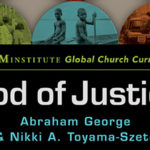Some preachers and theologians have called natural disasters God's judgment on sinful people. Don't everyday Christians—especially folks who suffer loss—have a right to declare such "prophecy" grandstanding and totally inappropriate?
This spring, Joplin, Mo., marked the one-year anniversary of a terrible storm that wiped out one-third of the city and killed about 160 people. For believers, all such disasters raise the question of God's involvement. Some Christian leaders say God has nothing to do with such events, while others say they are God's judgments on sin.
The Old Testament reports God judged people by natural disasters. The greatest example is the account of the great flood, recorded in Genesis 6-9. It's important to note at the end of that disaster, God promised he never again would wipe out the earth by a flood (Genesis 9:11-17). God sent a storm that killed Job's children (Job 1:18-19), and most of the plagues against Egypt in the Exodus were natural disasters (Exodus 7-11). God also sent a storm to capture Jonah (Jonah 1-2).
The New Testament does not connect natural disasters to God's judgment. In Matthew 5:45, Jesus said God causes the sun to rise on the evil and the good, and his rain to fall on the righteous and the unrighteous. Presumably, that applies to storms as well. In Luke 13:4-5, Jesus spoke of a tower that fell on people in Siloam. A natural disaster, like an earthquake, could have caused this collapse. Jesus said those who died in this event were no more wicked than anyone else. In Acts 27:1-28:10, the Apostle Paul experienced a storm on his way to trial in Rome that resulted in a shipwreck. The account doesn't suggest this storm was judgment on anyone.
 So, is it inappropriate grandstanding for contemporary preachers and others to attribute storms to God's judgment? First, we have to say the biblical evidence is mixed. At times, the Bible says God sends storms in judgment, but it doesn't say all such storms come from his wrath. Second, most scientists say storms like the one that occurred in Joplin are becoming more intense and frequent because of global warming. If we're causing global warming by the damage we do to our environment by our use of fossil fuels, then we, not God, have caused the storms. Third, if such storms are the expression of God's judgment, his wrath falls disproportionately on the poor, because they're usually the ones who suffer most in them.
So, is it inappropriate grandstanding for contemporary preachers and others to attribute storms to God's judgment? First, we have to say the biblical evidence is mixed. At times, the Bible says God sends storms in judgment, but it doesn't say all such storms come from his wrath. Second, most scientists say storms like the one that occurred in Joplin are becoming more intense and frequent because of global warming. If we're causing global warming by the damage we do to our environment by our use of fossil fuels, then we, not God, have caused the storms. Third, if such storms are the expression of God's judgment, his wrath falls disproportionately on the poor, because they're usually the ones who suffer most in them.
I believe Jesus would not respond to such storms by making accusations of guilt. Instead, he would minister to those who have suffered because of them. He also would remind us people who suffer in these storms are no worse than anyone else. Ultimately, natural disasters should remind us that life is tenuous and fragile.
Robert Prince, pastor
First Baptist Church
Waynesville, N.C.
Sign up for our weekly edition and get all our headlines in your inbox on Thursdays
Right or Wrong? is co-sponsored by the Texas Baptist theological education office and Christian Life Commission. Send your questions about how to apply your faith to [email protected].














We seek to connect God’s story and God’s people around the world. To learn more about God’s story, click here.
Send comments and feedback to Eric Black, our editor. For comments to be published, please specify “letter to the editor.” Maximum length for publication is 300 words.